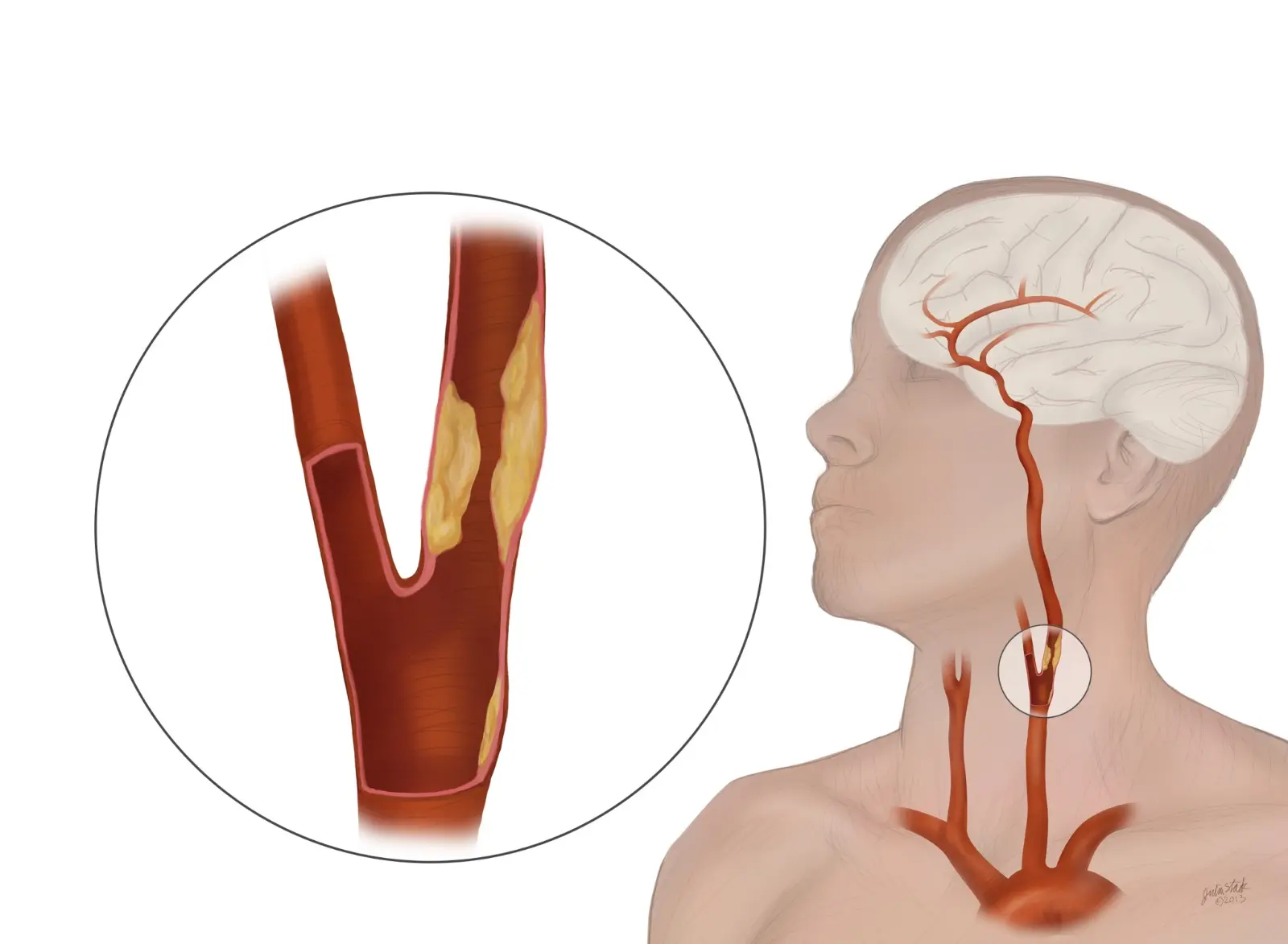Carotid Artery Disease
-
Blood flow to the brain is supplied by two carotid arteries located at the front of the neck and two vertebral arteries that run along each side of the spine.
-
There are two main dangers associated with carotid artery stenosis:
-
A fragment can break off from the narrowed section and travel to the brain, causing temporary or permanent neurological damage (embolism).
-
Complete blockage of the artery can result in a stroke.
-
If the blockage reaches a significant level (greater than 70%), it needs to be treated either with a stent or surgery.
-
Carotid artery narrowing can be most easily detected by Doppler ultrasound. However, any intervention must be confirmed and planned using angiography (via MRI, CT angiography, or conventional catheter-based angiography).
-
More than half of patients with significant carotid artery narrowing also have coronary artery disease. Performing a coronary angiography before carotid surgery is important to prevent heart attacks during the neck operation and to detect heart vessel narrowing early.
-
Stenting can be performed in appropriate cases. However, if the shape of the narrowing is not ideal, there is a higher risk of stroke from embolization during stenting compared to surgery.
-
In surgery, the carotid artery is opened, the plaque causing the narrowing is removed, and the artery is closed with a patch to widen it.
-
After surgery, there is no need for intensive care. You will be transferred to your hospital room within an hour.
-
Discharge usually occurs the next day or within two days.

- After coronary angiography, the decision for bypass surgery should be made by a multidisciplinary team consisting of cardiologists and cardiac surgeons.
- If the angiography was performed following a heart attack, the timing of the surgery will be planned based on the results of your medical tests (it may be done early or after a short delay, depending on your condition).
- Typically, a one-day hospital stay is required before surgery to complete routine preoperative evaluations. These tests are conducted to identify and address any potential risks during surgery (including detailed blood tests, echocardiography, carotid artery ultrasound, chest X-ray or CT if needed, and pulmonary function tests).
- If you are taking blood-thinning medications, they should be discontinued 5–7 days before surgery (you do not need to stop taking Aspirin). Your doctor will adjust your other medications accordingly.
- Full body shaving will be performed by hospital staff (do not do this yourself; they will use specialized tools tailored to the surgical procedure). Your nurse will explain how to bathe using a special antiseptic soap.
- If deemed appropriate by your doctor, a sedative will be given the night before surgery to ensure a restful sleep.
- As you are taken to the operating room, you will be conscious, but due to an intravenous medication, you will not remember entering the OR.




